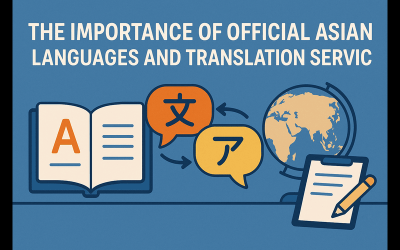You have a fantastic website offering the best products or services. You are gathering momentum among the locals, but once you seriously contemplate expansion on a global scale, here is where the question should be asked: Is your website ready for the world? The majority of businesses believe that an English-only website can cut it. Not really. To attract international customers to your brand, more than translation alone will be needed-you will need website localization.
What Is Website Localization, and Why Does It Matter?
Localization is far more than replacing one word with another. It is about appealing to the target audience’s cultural, linguistic, and even technical preferences. It is all about that feeling when people think your site was built especially for them and not just translated for them. And it is not just an option. It is a business strategy that will help to build trust and drive sales.
Now, let us break that down. You are surfing along, browsing this excellent website, but all the prices are in some weird foreign money. The date format is funny. The tone of the language is just a bit off. You feel like you are browsing a website which was never meant to be used by you. You know, it gets on your nerves. That is how it is for your potential customers across borders landing on your non-localized site. And, if they do not feel welcome, they will go.
Technical Translation Services
Translation services for technical documents demand a certain level of knowledge or practice in the field in question. Protranslate is ready to assign your next project to an expert.
Get a Quote
Cultural Adaptation: A Way to Build Trust
With website localization, the language is just the beginning. Each culture has its nuances, values, and expectations. A small mistake in judging the culture will turn customers off quicker than one can imagine. For example, colour can mean different things in diverse cultures. While red depicts luck in China, it signals danger in other parts of the world—humour, attitude toward customer service, or even how a culture views time- a significant distinction.
Empathy plays a key role here: if you can show that you are aware of and respect locals more, you are not just some anonymous company on the internet but someone to be trusted.
Localization allows you to become part of the conversation with some street corner peddler simply looking for a sale.
Enhancing Your SEO Through Localization
One benefit that few businesses note is that website localization can boost your SEO. Search engines like Google have a soft spot for localized content. Your rankings start to improve when your site is in a local language and with locally relevant keywords. Simple: People search in their language, and Google favours websites that give them results in the language they used to search.
So, you are invisible to a great audience with just one version of your site. By localizing, you will show up in more search results, which will, in turn, increase traffic, engagement, and even conversions.
Improved User Experience
People do not want to have to work hard to understand your website. They do not have the time, and quite frankly, they do not care enough to struggle. They will lose if one’s website is not easy to navigate or read.
Website localization means that the user experience will be smooth. The layout will concede to local tastes and preferences. Of course, the payment methods will also become more aligned with what people in a country are used to. Even the checkout process can be customized to suit locals. The more native your site feels, the better the user experience and yours will be.
For Insta, will Bence? Think about how different countries’ format addresses. In the United States, the zip code goes at the end. In Japan, it goes at the beginning. Customers can continue the sale in frustration if your form is congruent with local norms.
Do Not Let Translation Tools Do The Talking.
Some try to cut corners by using automatic translation tools. The approach can cause more harm than good. Machine translations may sound like robot settings or even wrong. It is like trying to fit a square peg into a round hole. Sure, it might fit with enough force, but the result is not great.
Humans can catch the tone, context, and shade that machines cannot. When the language feels clunky, it has a nasty look- it is less than. It makes your business seem less professional. Customers will feel you did not put in the effort. Why should they?
Investing in professional localization ensures your message gets through and across-naturally, every time. That is where the extra cost is worth it since it builds trust overall.
Localization Is Not Only For Big Companies
Think website localization is reserved for corporate giants. Think again. Small and medium businesses stand to benefit just as much, if not more. Quite literally, the global marketplace is at your fingertips. Whether it is a start-up or an established company, website localization may hold the key to new revenue streams.
Small businesses are often more agile, meaning you may be able to make changes more quickly than your larger competitors. You can progressively localize various parts of your website as you see fit, determining what works most effectively in each market. Only some things need to be localized at the same time. Start small. Target a region you already have some traction in. Build from there.
Creating Localized Marketing Campaigns
Website localization continues beyond your website. It needs to be the central aspect of your marketing strategy, as it should focus on the region you are operating in. Advertisements, promotional e-mails, and social media posts must strike a note with the audience locally. What works in one country might fall flat in another. Something as simple as a slogan gets lost in translation if you are not careful.
Successful businesses intuitively know that effective marketing means meeting people where they culturally, linguistically, and emotionally live. You will fall short if your campaigns feel disconnected from local norms and language. Customers want to see themselves reflected in your messaging; it should feel like your product or service was made for them, not just retooled and sold to them.
Certified Translation ServicesGet your documents translated and certified by a professional translator in 120+ languages with 24 hour delivery. Get a Quote |
The Bottom Line: Speak the Language of Your Customers
Your website is the first point of contact for customers with your brand. They will move on to one that does if it does not speak their language literally and figuratively. Website localization is not a trend but a requirement in the world market.
The world is getting connected, yet diverse. The same fact applies to your website for success across borders.
Briefly, website localization helps you:
- Gain their trust.
- Boost your SEO.
- Provide an excellent experience for users.
- Take your business globally.
But stay caught up in translation. Address your customers directly in their language and watch your business grow.
 Rana Maalouf
Rana Maalouf

